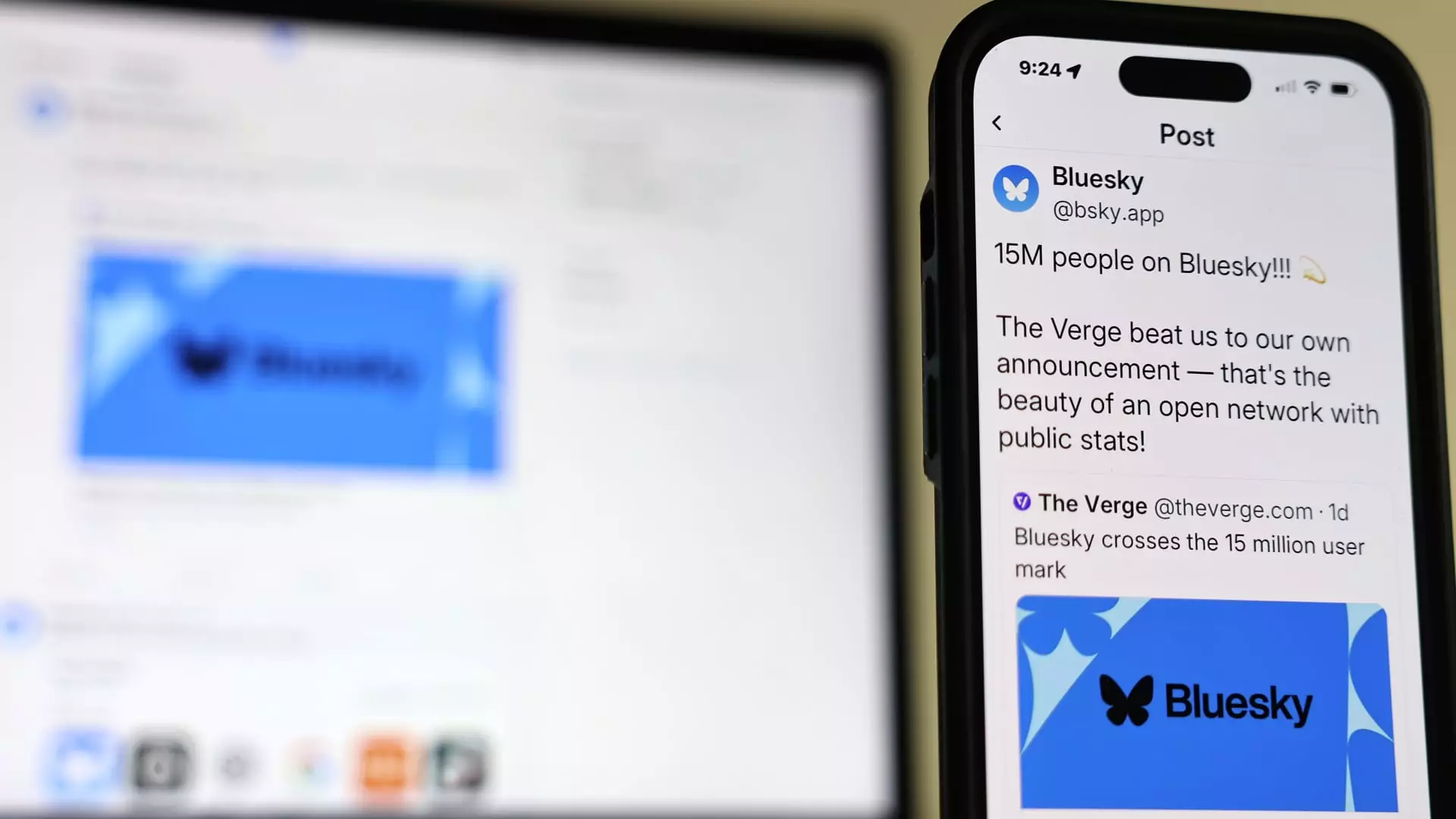In the wake of the recent presidential election, a social media platform known as Bluesky has rapidly gained traction, emerging as a noteworthy contender against established giants like Elon Musk’s X (formerly Twitter) and Meta’s Threads. This surge in popularity prompts a deeper exploration into what Bluesky offers and what the future may hold for it amidst criticisms of existing platforms. A significant aspect highlighted by CEO Jay Graber emphasizes that Bluesky is “billionaire proof,” signaling a deliberate design to allow users unprecedented control over their social media experience.
During an interview with CNBC’s “Money Movers,” Graber articulated Bluesky’s distinct open-source framework designed to empower users. This innovative approach sets the platform apart from traditional social media models by providing users the ability to migrate their entire network should they choose to leave – a feature that aims to reduce the risks associated with corporate acquisitions. This characteristic stands in stark contrast to the turmoil witnessed when Musk acquired Twitter in 2022, leading to an exodus of users disenchanted with the platform’s new direction. Graber’s assertion that Bluesky’s framework protects users in this regard underscores a significant shift in how social media can operate.
With over 21 million users, Bluesky’s growth trajectory, while still minor compared to X and Threads, is substantial and indicative of a growing discontent with existing platforms. Threads boasts around 275 million users, while X’s reported figures oscillate between 318 million to 600 million, reflecting the inconsistent nature of user counts across platforms. Despite this disparity, Bluesky’s innovative user-oriented strategies propose a compelling approach to user retention and satisfaction.
Bluesky is not an entirely new venture in the social media space; its roots trace back to 2019, during a period when Jack Dorsey led Twitter. Dorsey’s vision for a transformative social media experience inspired Graber’s journey in creating Bluesky. As Graber noted, the design philosophy leans heavily towards openness, transparency, and user control—qualities often neglected in the more conventional models of social networking. The company’s transition to a public benefit corporation in 2022 marks a significant pivot toward creating a more ethical and user-focused platform.
Unlike other social media platforms that heavily rely on algorithm-generated advertising, Bluesky is charting its own course regarding monetization. Graber has explicitly mentioned that the company will not inundate users with algorithmically recommended ads, a practice that many users find intrusive. Instead, Bluesky plans to introduce subscription services that offer exclusive features, which could appeal to a more discerning user base looking for quality over quantity. Additionally, the platform aims to cultivate a robust developer ecosystem to further expand its functionalities, promising a wealth of opportunities for third-party contributions.
These choices reflect a conscious effort to prioritize user experience above profit maximization, a stark contrast to the strategies that have characterized social media giants to date. As Bluesky continues to evolve, its approach may well set a new standard for social networking, emphasizing community and user empowerment over conventional monetization strategies.
As Bluesky rapidly becomes a recognized name in the social media arena, its development bears watching in light of the ongoing challenges faced by other platforms such as X and Threads. The phrase “billionaire proof” encapsulates an ambitious vision where users are not just passive consumers but active participants. By remaining committed to transparency and user agency, Bluesky not only seeks to retain its growing user base but also stands as a herald for the next wave of social media, intertwining technology with a strong ethical foundation.
The significance of this movement cannot be understated—Bluesky may mark the beginning of a paradigm shift in how social networks function, encouraging users to reconsider their relationships with these platforms. With a defined focus on user sovereignty, Bluesky is well-positioned to become a leading force in a landscape often criticized for its shortcomings, opening doors to a more empowered and engaged digital community.


Leave a Reply